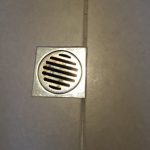7 Proactive Steps to Keep Your Plumbing in Tip Top Condition
Guest Post by Hubert Dwight
While domestic plumbing may not be the most exciting topic in the world, it is an essential part of keeping a household running smoothly.
If your sinks, toilet, and faucets suddenly stopped working, you’d be in a bit of a pickle, so it’s important that you take good care of them.
Fortunately, routine plumbing maintenance doesn’t have to be time consuming or expensive.In fact, it’s all about vigilance and common sense.
If you’re not sure whether you should be tipping that potato peel down the drain, don’t do it.
If you spot a minor leak under the bathroom faucet, don’t ignore it.
We know that these things are risky, but many of us still choose convenience over good sense. . . .and, this puts us at risk of flooding, blockages, major leaks, damp, and unexpected breakdowns.
These handy hints and tips will help you keep your plumbing in tip top condition all year round.
1. Fix Leaky Taps Quickly
Just because a small leak beneath a tap is unlikely to lead to a flood, that doesn’t mean that it isn’t a problem.
Get it checked out as quickly as possible, because at the very least it’s a huge waste of water and will drive up your bill.
2. Check the Toilet Flap Valve
There’s a little device inside toilets that causes a near constant sound of running water when it breaks down.
It is called a flapper and you can check that yours is healthy by dropping a teaspoon full of food colouring into the top tank.
If it appears in the bowl after 20-30 minutes, you need to look for reliable plumbing services in Melbourne and get it fixed.
3. Inspect Drains for Blockages
It’s easy to check whether drains are functioning properly.
Clearly, if the water isn’t disappearing, there’s a major blockage, but this is a problem that is usually identified quickly.
Smaller blockages are a little more insidious, but you can spot them by watching how fast the water runs down the sink.
If it runs, but it keeps backing up, add a baking soda and vinegar solution to try and clear the debris.
4. Clear Sediment from the Hot Water Service
Once per year, your boiler will need a little love and care.
Over time, tiny bits and pieces of debris build up in the bottom and this reduces overall efficiency.
You can get rid of it by hooking a hose up to the drain valve and emptying the unit of water.
Then, close it back up and let it refill. If you’re not comfortable doing this yourself, a plumber can help.
5. Keep Shower Heads Clean
If your shower head is getting a little lacklustre, soak it in vinegar overnight.
This will dislodge the minerals that naturally accumulate over time.
In the morning, rinse the head in warm water and the dirt should come away instantly.
6. Fill Up Floor Drains
Internal floor drains, like the ones commonly installed in utility rooms, need to be routinely checked for health.
There should be water at the bottom of the trap and if there is not, you can safely top it up yourself.
Do be careful not to add too much water. If evaporation is a problem, due to rising temperatures, a tablespoon of olive oil can reduce the rate of this process.
7. Use Appliances Correctly
One of the most common causes of domestic flooding is the misuse of household appliances.
Washing machines are the main culprit, because lots of homeowners overfill them.
This puts pressure on the components and the pipes can end up bursting and causing serious water
damage.
So, protect your home by using appliances in a safe and sensible manner.